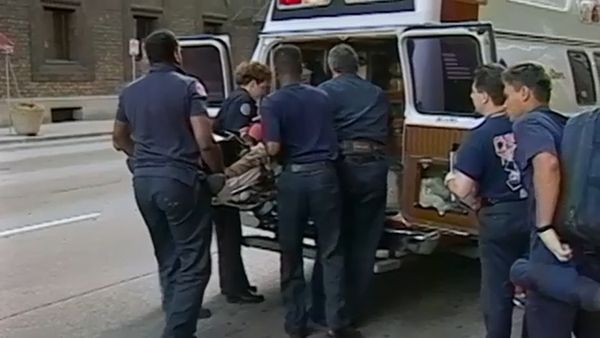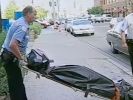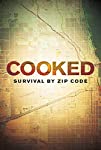Eye For Film >> Movies >> Cooked: Survival By Zipcode (2018) Film Review
Cooked: Survival By Zipcode
Reviewed by: Jennie Kermode

In 1995, at least 739 people died in Chicago as a result of a heat wave that lasted for just five days. At their peak, temperatures reached 41°C. Middle Eastern and Saharan cities survive heat like this all the time, but Chicago, of course, is situated right next to Lake Michigan. When humidity is high enough to stop people sweating properly and it's over 38°C, internal organs literally start to cook. Static air kills.
What puzzled documentarian Judith Helfand when she embarked on this project was that despite living in the city at the time, she had no memory of the disaster. A little research soon explained why. Her neighbourhood was barely affected. Almost all of the dead came from the same areas, and they were mostly black and Hispanic. They didn't have air conditioning. Crime rates were so high in their neighbourhoods that they dared not even open the windows. Looking at other disasters that affected the city and seeing similar patterns, Helfland began to ask: did these people die simply as a result of the heat, or did they die of neglect?

This isn't the first documentary to draw attention to the legacy of Chicago's urban planning, its racist zoning laws and the decades of political inaction that have allowed related harms to persist - and Chicago isn't the only city with these problems - but Helfand does a good job of explaining how easy it is for those who are unaffected (and even some of those who are) to overlook what's going on. In a brief prologue she explains how hurricane warnings led her to take shelter at her mother's house a few miles away, and how her brother offered to help out with a boat if they got stranded - a neat illustration of the kind of privilege which seems ordinary to many but which millions lack. She looks at how politicians hide behind rhetoric about the importance of individual preparedness when it's impossible to buy a boat, or even an A/C unit, if you're working two jobs and still living hand to mouth.
Disaster recovery is big business in the US. It's much easier to get money from the government to restore an area after a disaster has happened to it than to make it more disaster-proof in the first place. So why is the fact that people living in some areas have dramatically short life expectancies not seen as a disaster? There's a touch of naivety about the way Helfand puts this question to various corporate figures, many of whom are sympathetic, but not to the politicians who actually control the distribution of public funding, but it makes a point nonetheless. Although it doesn't demand an explanation from those most responsible, the film makes clear the fact that some lives are valued more than others.
A timely film which demonstrates how easy it is for privileged people to miss the subtle effects of racism, and how dangerous living in a white supremacist society is for people of colour, Cooked also serves as a reminder that, with temperatures rising every year and heatwaves becoming more common, action needs to be taken right away. The impact of climate change is not evenly distributed but sooner or later, it will affect everyone in this way.
Reviewed on: 10 Jul 2020















